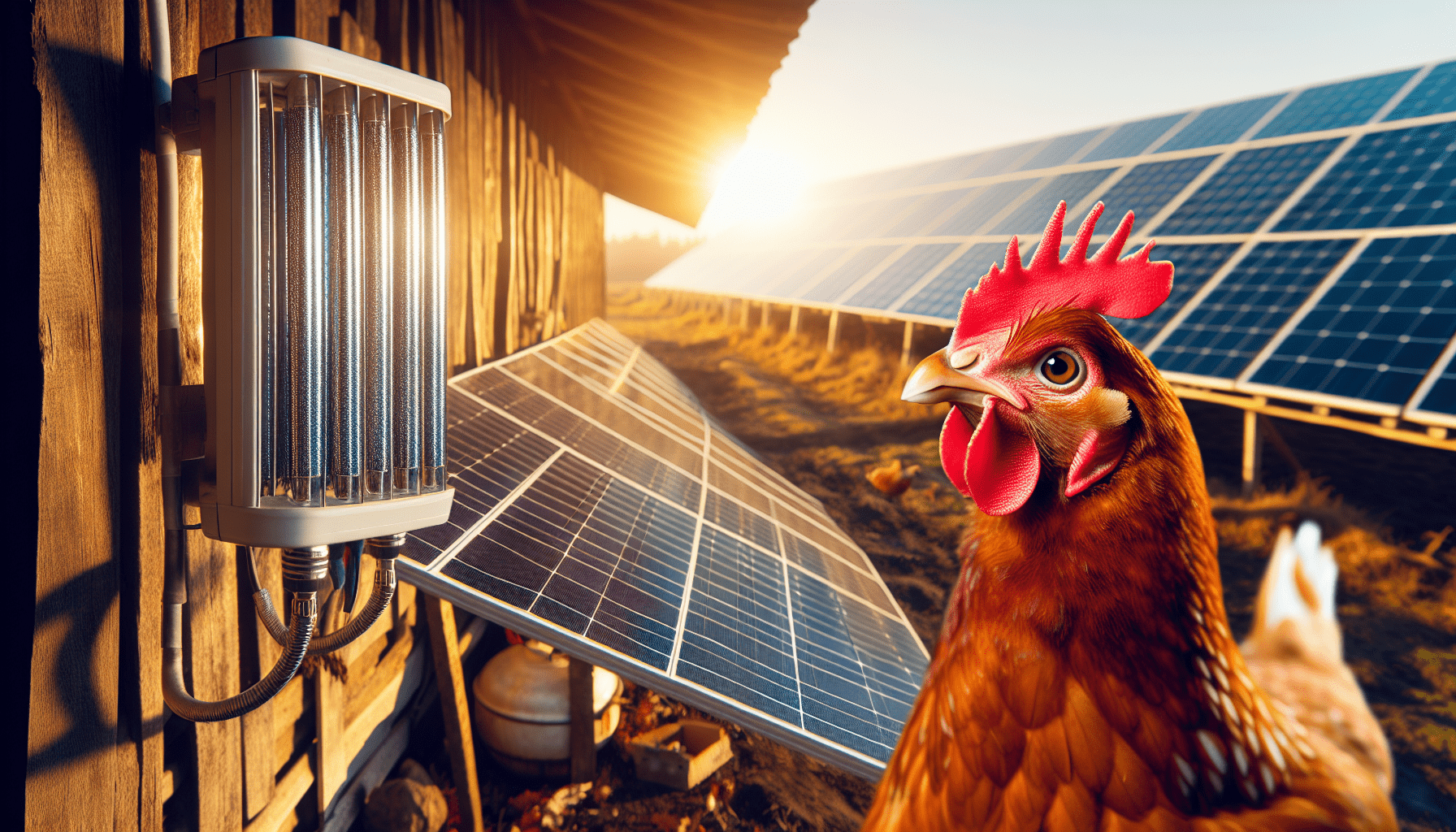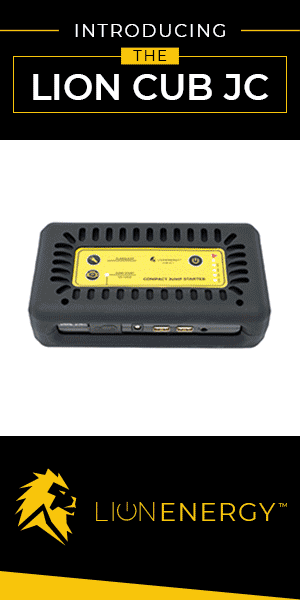Curious why your chickens reject their eco-friendly heater? Explore chicken behavior, solar heater function, and troubleshooting to ensure your flock stays warm and happy.
Do you ever wonder why your chickens suddenly seem to be staging a revolt against their solar power heater? You’ve spent time, energy, and perhaps no small amount of cash installing what you thought would be the perfect, eco-friendly solution for keeping your feathered friends warm, only to find them clucking in disapproval.
In this article, we’ll take a closer look at why your chickens might be giving your state-of-the-art solar power heater the cold shoulder. We’ll explore everything from the nature of solar power heaters, to chicken behavior and preferences, and even troubleshooting tips to ensure your investment brings comfort to your flock.
Understanding Solar Power Heaters
Solar power heaters are ingenious devices designed to harness the sun’s energy, converting it into heat for various uses, including to keep chicken coops warm. They work by absorbing sunlight through solar panels and converting it into thermal energy, which is then used to heat the inside of the coop.
How Solar Power Heaters Work
The technology behind these heaters is relatively straightforward but highly effective. Solar panels are installed either on the coop’s roof or in a sunny spot nearby. These panels collect solar energy and transfer it to a heat storage unit. The stored heat is then systematically released to maintain a comfortable temperature in the coop.
| Component | Function |
|---|---|
| Solar Panels | Collect solar energy. |
| Heat Storage Unit | Stores the absorbed heat. |
| Thermostat | Regulates temperature. |
| Insulation | Prevents heat escape. |
Benefits of Using Solar Power Heaters
Solar power heaters are not just good for your chickens but also for the environment. They reduce reliance on electricity or fossil fuels, making them a sustainable choice. They even offer cost savings over the long run, despite the initial investment.
- Eco-Friendly: Reduces carbon footprint.
- Cost-Effective: Saves on energy bills.
- Low Maintenance: Requires little upkeep.
- Consistent Heat: Provides steady warmth even during cold nights.
Why Chickens Might Get Picky About Their Solar Power Heater
If your chickens are acting like Goldilocks—finding the heater too hot, too cold, or just plain unacceptable—there are several reasons that might be at play. Chickens can be surprisingly particular, and their environment greatly influences their happiness and health.
Temperature Fluctuations
Chickens are creatures of habit and thrive in a stable environment. Major temperature swings can stress them out. If your solar heater isn’t regulated correctly, it might create a hot-and-cold situation that chickens find unsettling.
Placement of the Heater
Where you place the solar heater in or around the coop can significantly impact its effectiveness. If the heater is not optimally positioned to capture sunlight, it may not provide consistent warmth. Additionally, if the heat source is too concentrated in one spot, it can create hot zones that chickens might avoid.
Noise and Light Emissions
Even minimal noise or slight light emissions from the heater can disturb your chickens. These often-overlooked factors might make the chickens uneasy, leading them to shun otherwise useful heaters.
Behavior and Pecking Order
Chickens have a social hierarchy, often referred to as the “pecking order.” Dominant chickens may monopolize the warmer spots, leaving the subordinates in the cold. This can cause overcrowding in warmer areas, leading to discomfort.

Ensuring Your Solar Heater is Chicken-Approved
Fixing these issues usually involves a combination of adjustments to the heater and modifications to the coop environment. Here’s how you can make sure your solar power heater becomes a feathered favorite.
Optimize Temperature Settings
Ensure the heater’s thermostat is correctly set to provide a constant, comfortable temperature. Chickens generally prefer a range of 70-75°F (21-24°C). Make small adjustments and observe your flock’s behavior to find their “just right” temperature.
Ideal Placement of the Heater
Find a spot where the solar panels can collect maximum sunlight during the day. Inside the coop, position the heater to distribute warmth evenly without creating hot zones. A ceiling-mounted heater often works best but test different placements to see what your chickens prefer.
Minimize Disturbance
Choose a low-noise, low-light model to minimize disturbances. Some advanced heaters come with noise-dampening and light-blocking features. If noise is unavoidable, consider soundproofing the area around the heater.
Manage Pecking Order Dynamics
If the social hierarchy of your flock is causing problems, create multiple warm zones within the coop to prevent overcrowding. Using multiple smaller heaters can sometimes be more effective than one large unit.
Troubleshooting Common Issues
Uneven Heating
If you notice cold spots in the coop, ensure all heating elements are functioning correctly and the insulation is intact. Sometimes, tweaking the positioning of the heater can solve this issue.
Solar Panel Issues
Cloudy days or dirty panels can severely reduce the effectiveness of your solar power heater. Clean the panels regularly and consider a backup power source for cloudy periods.
Electrical Problems
Sometimes, the issue is as simple as a loose connection or a blown fuse. Regularly check the wiring and replace any faulty components.
Ineffective Insulation
Even the best heater can’t work its magic in a poorly insulated coop. Make sure your coop is well-insulated to retain the heat generated.

Solar Heater Options for Your Chicken Coop
If you’re considering a new solar power heater or upgrading an existing one, here’s a comparison of some popular models to help you decide.
| Model | Features | Price Range |
|---|---|---|
| EcoGlow Safety 600 | Low-light, energy-efficient, compact | $60 – $80 |
| Cozy Products CL Safe Chicken Coop Heater | Wall-mounted, low-noise, adjustable thermostat | $100 – $130 |
| Thermo-Peep Solar | Portable, solar-efficient, water-resistant | $150 – $200 |
| Brinsea EcoGlow 50 | Large capacity, consistent heat, energy-efficient | $80 – $110 |
Conclusion
Your chickens might be picky, but understanding their needs can go a long way towards ensuring they accept their solar power heater. By optimizing the temperature, placement, and minimizing disturbances, you can create a cozy, welcoming environment that makes your investment in solar power worthwhile.
Remember, chickens are like finely tuned instruments. They need the right environment to perform at their best. Tweak your solar heating setup just right, and you’ll have a happy, healthy flock enjoying the benefits of sustainable warmth.

